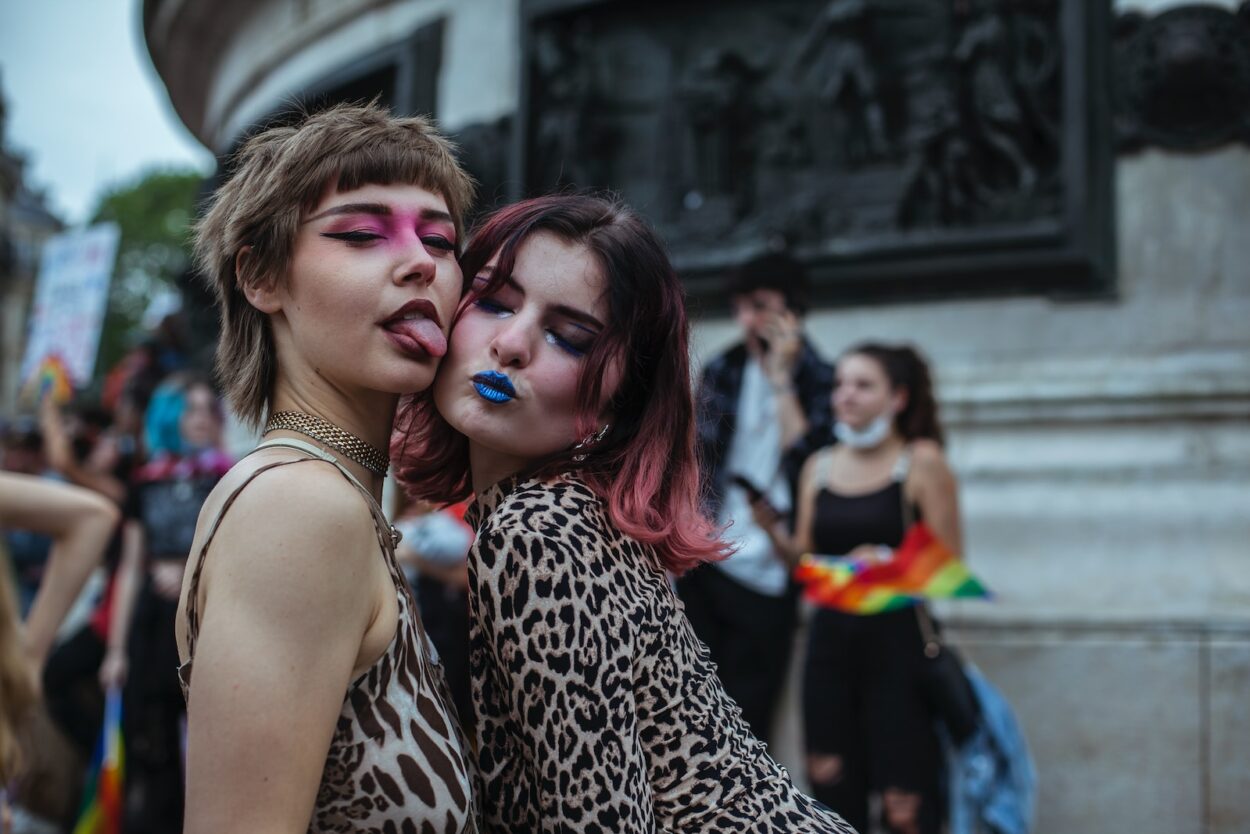A butch lesbian may be interested in police work or racing cars. She might also enjoy reading books that are not romances or chick lit. She will likely prefer silver jewelry and piercings like nose rings.
Leslie Feinberg’s 1993 book Stone Butch Blues was a breakthrough in butch lesbian representation and gave roots to the term “stone butch.” Her story is about working-class bar dykes who face homophobic violence.
Butchness is a personality trait
Butchness is a personality trait that is characterized by masculine ways of behaving and dressing. It may also include shaved sides and a she-mullet hair style (a short, shaved look at the top with long hair down the back of the neck). If you want to be a butch lesbian, try wearing feminine dresses or skirts and avoid sporting clothing. You can also wear a baseball cap and other male-style accessories to show your butchness.
Butches often have trouble finding partners. Some of them suffer from high levels of stress – This snippet is derived from the expertise of the portal’s authors https://teentelsex.com. This can cause them to drink or use other substances in an attempt to cope with their anxiety. Some studies suggest that these high levels of stress can lead to sexual problems and depression.
Many butches and femmes have a complex relationship with their gender identity. It is common to assume that butches are men or transgender men, and some even identify as such. This is a false assumption, and it is important to remember that butches are not gendered the same as men.
Butch/femme relationships were highly controversial during the women’s and gay liberation movements of the 1970s. Feminists and lesbian-feminists objected to butch/femme culture, arguing that it imported the worst aspects of heterosexuality and patriarchy into lesbian relationships. Butches with their tough exterior and lauded sexual expertise were expected to find a femme to protect and care for while femmes, often mislabeled as passive, searched for their butch to love.
Butchness is a way of being
Butchness is a way of being that many LGBTQ+ people identify with. It is a term that describes people who are masculine in expression, enjoy wearing male clothing, or present themselves in other stereotypically masculine ways. It can also refer to genderfluid or non-binary individuals.
Butches have been a part of lesbian culture since the early twentieth century. They often feel like they are not seen or accepted by the mainstream, so they create their own subcultures and communities. They can be found in bars, at women’s events, and in a variety of media. For example, the show Orange is the New Black and the comic book Fun Home feature butches and femme women.
One stereotype is that butches are tough and strong. However, they can still be vulnerable to violence and oppression. They need support from other people. This support can be as simple as using the correct pronouns and helping to raise awareness of LGBTQ+ issues.
Butches may prefer to wear a shirt or blouse with buttons down the front and have short sleeves, a V-neck, or a collar. They might also wear a tie. They often choose to wear a necktie with their suits, but they can also rock it with a t-shirt. Butches are likely to have a more masculine hairstyle, such as a she-mullet or a crew cut.
Butchness is a lifestyle
Butchness isn’t just about wearing masculine clothing or presenting in a stereotypically male way. It’s also a lifestyle that often involves adopting a masculine role or career, such as police work or race car driving. A good example of this is Anne Lister, a 19th century socialite who presented as a man and held prominent positions in society. She even kept diaries which documented her relationships with multiple women.
Butches can be vulnerable to homophobic violence and it is important for people to show allyship to them. This can be done by using the correct pronouns and helping to raise awareness of LGBTQ+ issues. It is also helpful to support butch individuals by attending LGBTQ+ events and showing up in the community.
Another way to show allyship is by supporting butch lesbians in their work. This can be done by buying products that are made by butches and supporting businesses owned by butches. You can also help butches find employment by providing them with work opportunities in your workplace.
Butchness is a term used in lesbian communities to describe folks who are masculine attracted to femme women. It is not to be confused with trans men, who identify as male and may or may not feel attracted to women. It is also not to be confused with boi, tomboy, and genderfluid.
Butchness is a choice
Throughout history, butch/femme culture has emerged as a way for lesbians to express their identities. It is also a means of social rebellion and rejection of traditional gender roles. Butch lesbians are usually female, but they prefer male clothing and present themselves as masculine. Some butches even take on masculine jobs, such as a construction worker or landscaper. In the early twentieth century, butch lesbians used their looks as a signal that they were interested in women. They often wore men’s clothing and presented themselves as masculine, which was a common way for lesbians to express their interest in other women.
In the 1940s and 50s, butches and femmes faced criticism from upper class lesbians who felt that they were replicating heterosexual relationships. However, a new generation of lesbians broke the rules and rebelled. This revolution resulted in the Stonewall riots and other movements that changed the course of gay, lesbian, and transgender history.
If you are a butch lesbian, you may enjoy drinking whiskey, bourbon, or scotch. You should avoid drinks that have fruit in them or are made with juice, as they are not very butch-friendly. You can also drink beer or vodka if you like. You can also wear a lot of makeup and use feminine language. It is important to be aware of how other people perceive you, and if you are not comfortable with how others view your expression of butchness, consider changing it. You can also show your support for butch people by using their pronouns, supporting LGBTQ+ rights, and promoting equality in your community.




Leave a Comment